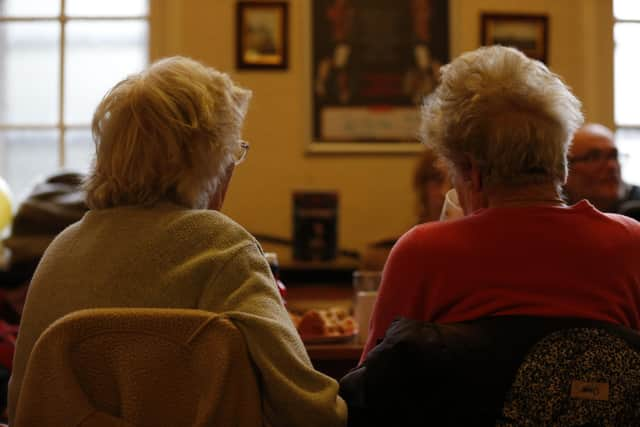Quarter of suspected dementia cases in Worksop and Retford lack formal diagnosis
and live on Freeview channel 276
Charities have called on the Government to improve diagnostic rates and invest in support for people living with dementia.
Figures from the NHS show 1,599 people aged 65 and older in Bassetlaw were estimated to have dementia in March 2023. Of them, 1,169, 73.1 per cent, had a formal diagnosis.
Advertisement
Advertisement
It meant 26.9 per cent of people believed to have dementia in the area did not have a diagnosis.


Paul Edwards, director of clinical services at Dementia UK, said dementia is a growing issue in society largely due to an ageing population.
He said continued cuts and a lack of focus on community services which support families with dementia have led to “thousands being stuck in limbo and highly stressed” as they are unable to get a diagnosis.
“In this climate of stretched services and increasing diagnosis rates, we urgently need to bridge the gap between health and social care systems, so that people receive a timely diagnosis and can access the support they need,” he said. “No-one should have to face dementia alone.”
Advertisement
Advertisement
Across England, an estimated 687,000 people aged 65 and older have dementia. Of them, 433,000 patients, 63 per cent, had a recorded diagnosis of dementia as of March.
Mark MacDonald, Alzheimer’s Society associate director for advocacy, said dementia diagnosis rates hit a five-year low during the coronavirus pandemic and have stagnated since.
He said: “Tens of thousands of people are facing the realities of dementia alone, without access to the vital care and support a diagnosis can bring. Timely diagnosis is crucial to manage symptoms and avoid ending up in crisis.”
He said the government must commit to recovering diagnostic rates to pre-pandemic levels of 66.7 per cent and called for a £70 million investment in England’s diagnosis services.
Advertisement
Advertisement
A Department of Health and Social Care spokesman said: “Timely diagnosis of dementia is vital, and the NHS is committed to bringing the dementia diagnosis rate back to pre-pandemic levels.”
He saud the forthcoming Major Conditions Strategy, will set out how to prevent, diagnose, and manage six major conditions, including dementia, that drive ill health and early death in England.